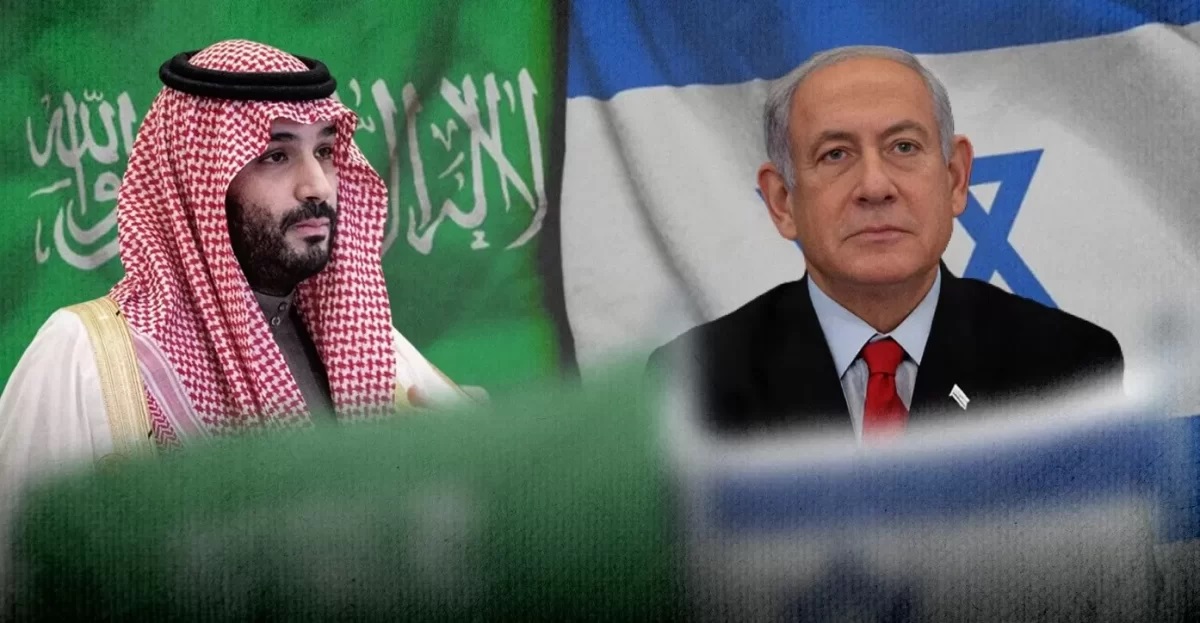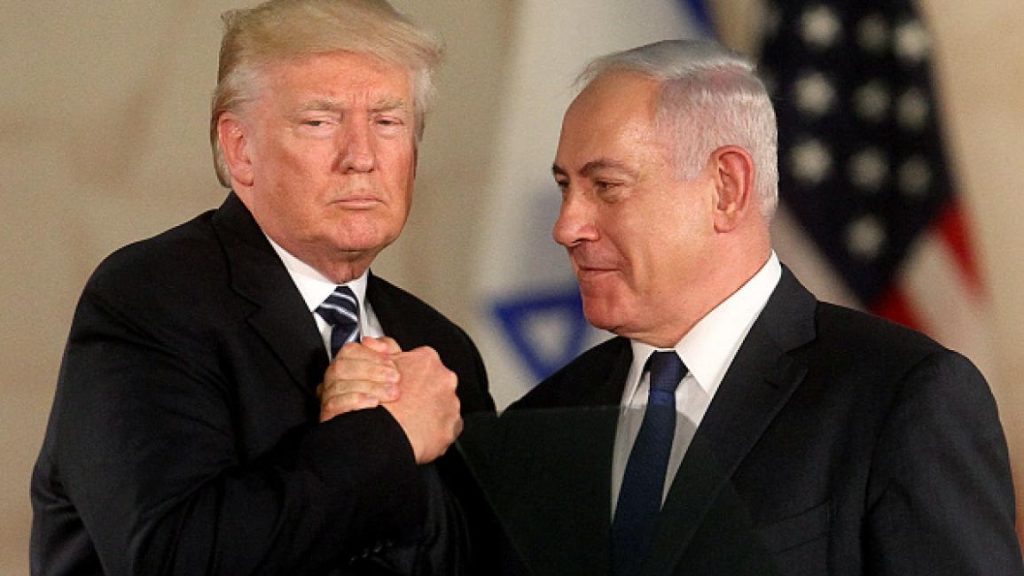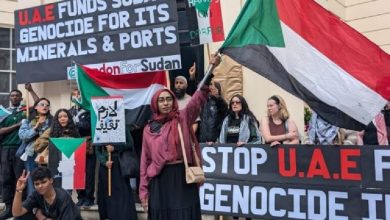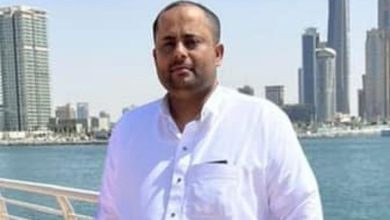Israel’s Preparations for Second-Phase Gaza Talks: Potential Link to Saudi Deal?
Israeli Prime Minister's Washington Visit Aims to Advance Second Phase of Agreement with Hamas.

Watan-Today marks the sixteenth day since the implementation of the ceasefire agreement in Gaza between Israel and Hamas. As per the agreement’s first phase, Israel has yet to decide on sending a delegation for the second-phase talks. Concurrently, Israeli Prime Minister Benjamin Netanyahu is visiting Washington, D.C., today, Monday, where he is expected to meet later with U.S. President Donald Trump.
The delay in initiating the second-phase discussions is not due to either party’s withdrawal. It was revealed yesterday that Netanyahu made some changes to the leadership of the negotiation delegation, appointing Strategic Affairs Minister Ron Dermer as the head of the delegation, while maintaining the existing hierarchy within the negotiating team’s structure, which is expected to handle security matters and their arrangements.
The purpose of these new adjustments is to align with the requirements of the upcoming phase, which now encompasses a scope much broader than the Gaza Strip. Dermer, who is considered a “special foreign minister,” will oversee the “grand deal” currently being crafted within the corridors of the White House, ultimately aiming to reach a normalization agreement between Israel and Saudi Arabia.
In this context, the newspaper “Yedioth Ahronoth” reported today, Monday, assessments that reinforce what was revealed yesterday regarding these changes, confirming that the heads of “Mossad” and “Shin Bet,” David Barnea and Ronen Bar, along with the head of the Israeli Prisoners and Missing Persons Authority, General Nitzan Alon, will remain within the structure of the negotiating delegation, even after Dermer’s involvement.
According to the newspaper, for Netanyahu, the negotiations regarding the second phase begin today during his meetings in Washington with U.S. Middle East envoy Steve Witkoff. Later in the week, Witkoff is expected to speak with the Qatari Prime Minister and Foreign Minister, Mohammed bin Abdulrahman Al Thani, and senior Egyptian officials, as Witkoff himself leads the negotiation process for the second phase.

While the newspaper “Haaretz” reported yesterday that the changes Netanyahu intends to make in the leadership of his negotiating delegation are due to American pressures since President Donald Trump’s return to the White House, aligning with the requirements of the “grand deal” with Saudi Arabia, “Yedioth Ahronoth” noted that Netanyahu spoke with Barnea and Bar about his intention to make the changes, quoting political officials who said that these changes aim to “deliberately weaken the professional level in the negotiations in favor of the political level close to Netanyahu (Dermer).”
According to the same political officials, “the reasons for these changes lie in the possibility of linking any additional deal related to the Gaza Strip with reaching a settlement with Saudi Arabia, but they are also related to Netanyahu’s desire to obstruct the second phase of the deal.” Their evidence is that Bar and Alon are considered in Netanyahu’s circles as “unreliable to achieve his interests.”
In any case, Israel is expected to adhere to three demands in the second phase, according to “Yedioth Ahronoth”: first, the exile of Hamas leadership; second, the disarmament of the Gaza Strip; and third, the release of all detainees. According to the newspaper, the estimates regarding Hamas’s agreement to the above are “weak,” and therefore “there is no optimism about completing the deal.” However, “there is a possibility that Hamas leader Mohammed al-Sinwar may agree to a temporary deal in which more prisoners from both sides are released.”
All of the above comes as the first phase of the deal is supposed to end on March 1, where the phase lasts 42 days. According to the agreed-upon terms, on the 50th day of the agreement, Israel is to withdraw from the Salah al-Din (Philadelphi) corridor. However, according to the newspaper, “it does not seem that there is an (Israeli) intention to do so without an agreement to complete the deal.”
While the Qatari Prime Minister acknowledged yesterday that there are currently “no clear details” regarding the timing of the talks about the second phase and how they will start, he emphasized his hope that “we will see movement” in the coming days. For Netanyahu, as the newspaper indicates, “the negotiations begin in Washington, not in Qatar; he is expected to discuss in his meetings Israel’s positions regarding the continuation of the agreement.”

Although a delay of a day or two in starting the second-phase negotiations may not be pivotal to this extent, the third phase of this agreement is fundamentally the major problem. The reason for this is the American desire to delay the reconstruction process and pressure the residents of the Gaza Strip to migrate to Egypt and Jordan. As is evident, the second phase will not come into effect as long as there is no actual agreement on the third phase, which will include the exchange of remains, ending the war, and rebuilding the Strip.
Despite all the ongoing linkage between reaching a normalization agreement between Saudi Arabia and Israel and ending the war in the Gaza Strip, “Yedioth Ahronoth” noted that Netanyahu will discuss in his meetings with the American president not the details of the deal itself, but everything surrounding it, including “addressing the Iranian threat” and “the agreement with Saudi Arabia.”
According to the newspaper, both the United States and Israel understand that Saudi Arabia will not come to the negotiating table unless the war in the Strip stops and, on the sidelines, an agreement on a “political horizon for the Palestinians” is announced. It is not yet known what will be requested from Israel in general, and from its prime minister in particular, regarding this horizon and whether it will be at the actual level or merely a passing declaration.
Against this backdrop, the newspaper noted that Netanyahu will try to convince Trump to address the “Iranian threat” first, and then reach a “historic agreement in the Middle East.” In such a case, Netanyahu will claim that such a path will also serve Saudi interests and provide time to make decisions regarding the Gaza Strip without linking it to a tight and binding timetable.

However, Trump’s winds may not necessarily align with those desired by Netanyahu’s ships; Trump may prefer to start with Saudi Arabia, which will put Netanyahu to the test. The American president may say first and foremost, “End the war and retrieve all the detainees. If you don’t do that, then there will be no Saudi Arabia and no Iran.”






